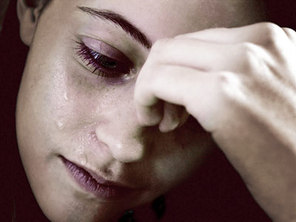Depression

What are the Symptoms of Depression?
Depression varies from person to person, but there are some common signs and symptoms. It’s important to remember that these symptoms can be part of life’s normal lows. But the more symptoms you have, the stronger they are, and the longer they’ve lasted—the more likely it is that you’re dealing with depression. When these symptoms are overwhelming and disabling, that's when it's time to seek help.
Signs and symptoms of depression can include:
What treatments are available?
The most common forms of treatment offered are counselling and medication. Your GP can advise you on medication.
How can Counselling help?
Counselling, particularly Cognitive Behavioural Therapy (CBT) has been found to be very effective in the treatment of depression.
Cognitive Behavioural Therapy (CBT) - is one of the most common and well supported treatments for depression. It is based on the idea that a person's thoughts in response to an event or situation causes the difficult feelings and behaviours (i.e., it is often not an event that causes distress but a person's interpretation of that event). The aim of cognitive therapy is to help people to identify unhelpful beliefs and thought patterns, which are often automatic, negative and irrational, and replace them with more positive and helpful ways of thinking.
What else will help?
If you have any questions regarding counselling and depression or if you want to make an appointment
call David on 086 4052211. You can also email [email protected]
Depression varies from person to person, but there are some common signs and symptoms. It’s important to remember that these symptoms can be part of life’s normal lows. But the more symptoms you have, the stronger they are, and the longer they’ve lasted—the more likely it is that you’re dealing with depression. When these symptoms are overwhelming and disabling, that's when it's time to seek help.
Signs and symptoms of depression can include:
- Feelings of helplessness and hopelessness. A bleak outlook—nothing will ever get better and there’s nothing you can do to improve your situation.
- Loss of interest in daily activities. No interest in former hobbies, pastimes, social activities, or sex. You’ve lost your ability to feel joy and pleasure.
- Appetite or weight changes. Significant weight loss or weight gain—a change of more than 5% of body weight in a month.
- Sleep changes. Either insomnia, especially waking in the early hours of the morning, or oversleeping (also known as hypersomnia).
- Anger or irritability. Feeling agitated, restless, or even violent. Your tolerance level is low, your temper short, and everything and everyone gets on your nerves.
- Loss of energy. Feeling fatigued, sluggish, and physically drained. Your whole body may feel heavy, and even small tasks are exhausting or take longer to complete.
- Self-loathing. Strong feelings of worthlessness or guilt. You harshly criticise yourself for perceived faults and mistakes.
- Concentration problems. Trouble focusing, making decisions, or remembering things.
- Unexplained aches and pains. An increase in physical complaints such as headaches, back pain, aching muscles, and stomach pain.
What treatments are available?
The most common forms of treatment offered are counselling and medication. Your GP can advise you on medication.
How can Counselling help?
Counselling, particularly Cognitive Behavioural Therapy (CBT) has been found to be very effective in the treatment of depression.
Cognitive Behavioural Therapy (CBT) - is one of the most common and well supported treatments for depression. It is based on the idea that a person's thoughts in response to an event or situation causes the difficult feelings and behaviours (i.e., it is often not an event that causes distress but a person's interpretation of that event). The aim of cognitive therapy is to help people to identify unhelpful beliefs and thought patterns, which are often automatic, negative and irrational, and replace them with more positive and helpful ways of thinking.
What else will help?
- Exercise or engaging in some form of daily physical activity
- Eating a nutritious, well-balanced diet
- Obtaining an adequate amount of sleep
- Seeking emotional support from friends and family
- Monitoring how you think about stress and reduce and/or change thoughts which are negative
- Reducing or eliminating the use of alcohol and drugs and limiting caffeine intake
If you have any questions regarding counselling and depression or if you want to make an appointment
call David on 086 4052211. You can also email [email protected]
